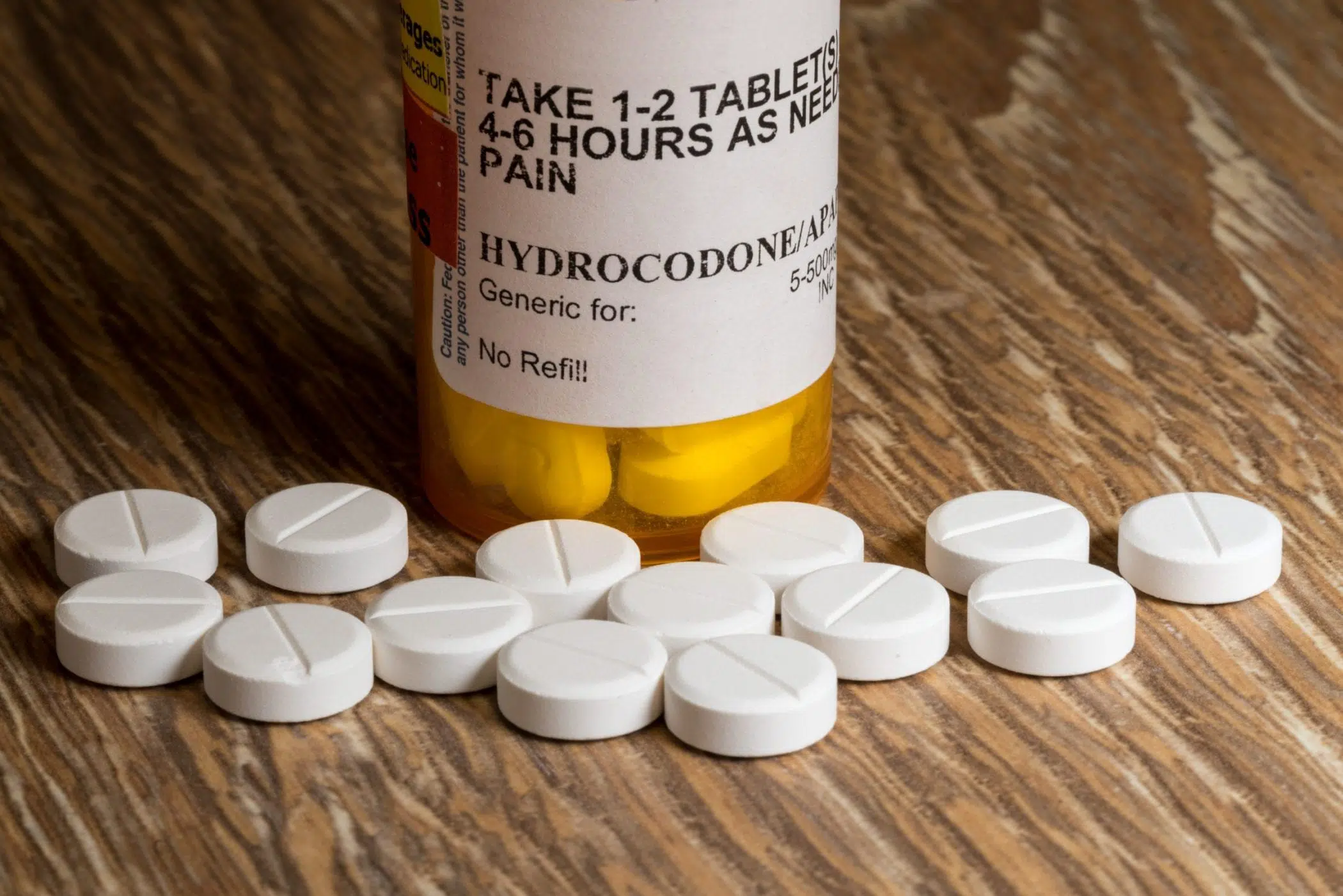
Vicodin is one of the most common drugs involved in prescription opioid overdose deaths in the U.S. Knowing what Vicodin is and how this drug works can help you and your loved ones stay safe and avoid a drug overdose. Those who want to stop using Vicodin but can’t due to severe withdrawal symptoms and drug cravings can recover from both Vicodin dependence and addiction at a drug rehab center.
What Is Vicodin, and How Does It Work?
Vicodin is the brand name for hydrocodone combined with acetaminophen. Hydrocodone/acetaminophen combination drugs like Vicodin are the most commonly prescribed opioids in the U.S., according to the Journal of Pain Research. Hydrocodone is an opioid like heroin, fentanyl, and oxycodone, while acetaminophen is an analgesic commonly sold as an over-the-counter drug like Tylenol.
Vicodin is prescribed to relieve moderate to severe pain. This drug binds to opiate receptors in the brain to change the way the brain responds to pain. Vicodin produces effects including pain relief, relaxation, and euphoria to help people feel better after surgeries, injuries, and certain cancer treatments.
Side effects of Vicodin may include dry throat, constipation, lightheadedness, fuzzy thinking, constricted pupils, and anxiety. Serious side effects may include slowed breathing, vomiting, hallucinations, and rapid heart rate, according to MedlinePlus. People who experience the serious side effects of Vicodin should visit the emergency room immediately to prevent further complications.
How Do People Become Addicted to Vicodin?
Like all other opioids, Vicodin is highly addictive when misused or used for longer than a few weeks. Many people who become addicted to Vicodin do so unintentionally and completely by accident. This drug interferes with brain chemicals like dopamine that plays a role in feelings of reward and happiness, which influences people to keep seeking and using Vicodin despite negative consequences.
People can become addicted to Vicodin for any one of several reasons, such as using this drug long term even if they’re using it for legitimate medical reasons. Vicodin addiction can also occur when people use higher doses than prescribed, or when they use the drug in ways other than directed, such as crushing and snorting. Using the drug for the sake of experiencing a euphoric high can also lead to dependence and addiction.
Every day in the U.S., an estimated 5,480 people in the U.S. misuse prescription opioids for the first time, reports the National Institute on Drug Abuse. In 2017, prescription opioids like Vicodin were involved in more than 35% of all drug overdose deaths in the U.S.
How Is Vicodin Addiction Treated?
Vicodin addiction can be safely treated at a drug or alcohol rehab center using medical detox and behavioral therapy. Medical drug detox is the first stage of addiction treatment that helps with the management of physical withdrawal symptoms like sweating and muscle aches. Drug detox only treats physical Vicodin dependence but doesn’t address behaviors and thought-processes contributing to Vicodin addiction.
Vicodin drug detox may involve the use of medications like methadone and buprenorphine that act on the same opiate receptors as Vicodin, but without producing euphoria. Over the course of several weeks, your doctor may gradually taper you off these drugs to prevent you from going through severe withdrawal. Some people in recovery from Vicodin dependence stay on these medications for several months or years to help them stay abstinent long term.
After Vicodin detox, people can join a drug rehab program that helps them recover from Vicodin addiction. Individual and group therapies like cognitive-behavioral therapy and 12-step Narcotics Anonymous meetings help patients change harmful behaviors that may have triggered addiction in the first place. These therapies are also shown to give patients a much-needed boost in confidence and self-esteem after having suffered from addiction.
Recovering From Vicodin Addiction with ARC
America’s Rehab Campuses treat Vicodin addiction using drug and alcohol detox and a variety of therapies that are individualized for each patient. Our inpatient and residential rehab programs include daily nutritious meals, housekeeping services, and access to a fitness center, swimming pool, lounge area, and many other top-notch amenities that support a healthy recovery.
If you or a loved one needs help recovering from Vicodin addiction, contact ARC today at 833-272-7342 to learn more about your insurance benefits and begin the admissions process.

